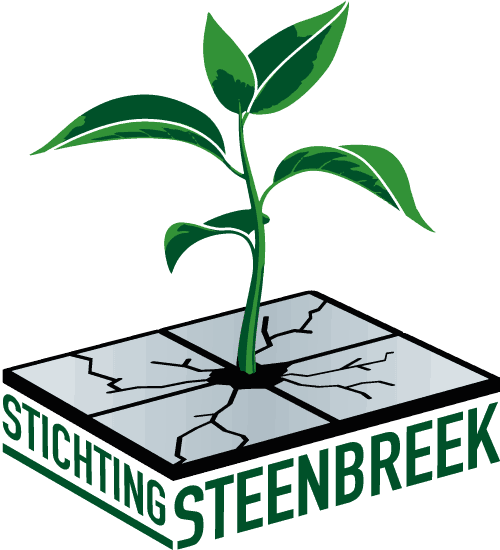Bronnenlijst bij artikel ‘Beheer van eikenprocessierups: keuzes op basis van kennis
Bronnenlijst bij artikel ‘Beheer van eikenprocessierups: keuzes op basis van kennis
Vakblad Groen nummer 7/8 pagina 26
- Range-Expansion in Processionary Moths and Biological Control (2020), J.G. de Boer en J.A. Harvey.
- Weather-dependent fluctuations in the abundance of the oak processionary moth, Thaumetopoea processionea(Lepidoptera: Notodontidae) (2018), Csóka, Hirka, L. Szőcs, N. Móricz, E. Rasztovits, Z. Pödör
- Leidraad Beheersing Eikenprocessierups – Update 2019 (2019), J.H. Spijker, S. Hellingman, G. Hellingman, H. Hofhuis, H. Jans, H. Kuppen, A.J.H. van Vliet
- Five years of continuous Thaumetopoea processionea monitoring: tracing population dynamics in an arable landscape of south-western Germany (2011), E. Wagenhoff, H. Veit
- Complex responses of global insect pests to climate warming (2020), P. Lehmann, T. Ammunét, M. Barton, A. Battisti, S. D. Eigenbrode, J. Uhd Jepsen, G. Kalinkat, S. Neuvonen, P. Niemelä, J. S. Terblanche, B. Økland, C. Björkman
- Pesticide use and pesticide policy in the Netherlands (1992), J. Oskam, H. van Zeijts, G.J. Thijssen, G.A.A. Wossink, R. Vijftigschild
- Macro-Invertebrate Decline in Surface Water Polluted with Imidacloprid (2013), T. C. Van Dijk, M. A. Van Staalduinen, J. P. Van der Sluijs
- Natuur als bondgenoot, Biologische bestrijding van ziekten en plagen (2008), J.W.M. Osse, L. Schoonhoven, M. Dicke, R. Buiter
- Potential for Entomopathogenic Nematodes in Biological Control: A Meta-Analytical Synthesis and Insights from Trophic Cascade Theory (2008), R. F. Denno, D. S. Gruner, I. Kaplan
- Bacillus thuringiensis and Its Pesticidal Crystal Proteins (1998), Schnepf, Crickmore, J. Van Rie, D. Lereclus, J. Baum, J. Feitelson, D. R. Zeigler, D. H. Dean
- More than 75 percent decline over 27 years in total flying insect biomass in protected area (2017), C. A. Hallmann, M. Sorg, E. Jongejans, H. Siepel, N. Hofland, H. Schwan, W. Stenmans, A. Muller, H. Sumser, T. Horren, D. Goulson, H. de Kroon
- An Overview of Mechanisms of Cry Toxin Resistance inLepidopteran Insects (2017), B. Peterson, C. Bezuidenhout, J. Van den Berg
- Parallel Declines in Pollinators andInsect-Pollinated Plants inBritain and the Netherlands (2006), C. Biesmeijer, S. P. M. Roberts, M. Reemer, R. Ohlemu ̈ller, M. Edwards, T. Peeters, A. P. Schaffers, S. G. Potts, R. Kleukers, C. D. Thomas, J. Settele, W. E. Kunin
- Effects of agricultural intensification on ability of natural enemies to control aphids (2015), Z. Zhao, C. Hui, D. He, B. Li
- Samen werken aan Biodiversiteit (2017), M. Koedoot, J. Schaminée, M. Wassen
- Ecologisch beheer van de publieke ruimte: mogelijkheden voor dijk-, slootkant- en wegbermbeheer, toegespitst op de Hoeksche Waard (2009), B.G. Meerburg en H. Korevaar
- De invloed van natuurgebieden op zweefvliegen en bijen in agrarische gebieden (Diptera: Syrphidae; Hymenoptera: Apidae) (F. Kohler, R. van Klink, J. Noordijk, D. Kleijn,
- Insect pheromones: an overview (2010), K. R. Sharma en R.R. Martin
- Pheromone history and applications (2003) M. Patlak, T. Baker, M. Berenbaum, R. Cardé, T. Eisner, J. Meinwald, W. Roelofs, D. Wood
- Pheromone mating disruption offers selective management options for key pests (2005), S. C. Welter, C. Pickel, J. Millar, F. Cave, R. A. Van Steenwyk, J. Dunley


